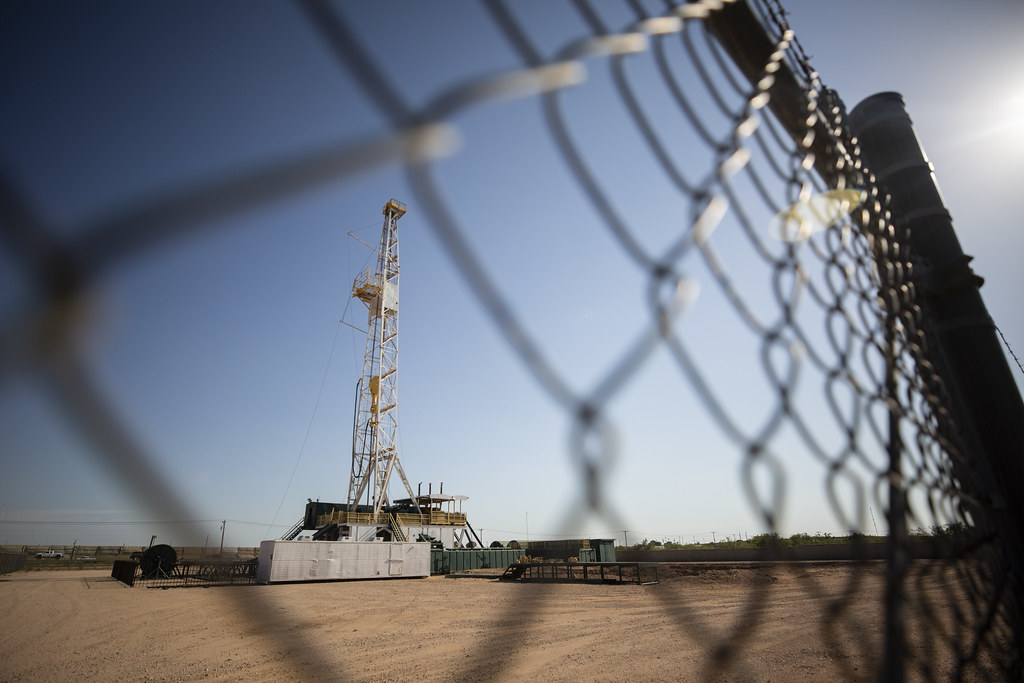When Russia invaded Ukraine just over a year ago, fears abounded about how the war may escalate, and how it could reshape the world economy. While we’ve avoided full-scale global war, there’s no doubt the conflict has had ripple effects on industries like agriculture and energy.
Matt Smith, lead oil analyst for the Americas at Kpler, spoke with the Standard about the ways the oil and gas markets have changed as the war reaches the one-year mark. Listen to the interview above or read the transcript below.
This transcript has been edited lightly for clarity:
Texas Standard: With the one-year anniversary of the invasion of Ukraine, we should talk about how oil prices have been affected over the last year and what the biggest changes have been in flows, because I know there were a lot of projections around these questions.
Matt Smith: Yeah, exactly. So in the immediate aftermath of the invasion, we saw Brent Crude, that kind of global benchmark, got up to nearly $140 a barrel, and that’s the highest that it’s been since the financial crisis in 2008 when prices got to a record $147. But even though prices got sort of a bit higher again in June, they’ve been gradually dropping ever since. And now they’re gravitating on a Brent basis, sort of $80 to $85, and WTI $75 to $80, just because the supply concerns haven’t manifested themselves, because Russia has essentially been able to redirect its crude.
And so supply hasn’t dropped. It’s just not been going into Europe because of sanctions and self-sanctioning, but it’s instead being picked up by Asia and predominantly India and China there.
So what about natural gas prices? Something similar on that front?
Yeah, exactly. So there was the immediate concern, and we saw prices really run up last summer: They got to their highest, again, since mid-2008 just because of supply concerns ahead of a potentially harsh winter in Europe there. So they got up to close to $10 MMBtu when prior to the war they were closer to, you know, in the kind of $2 to $3 range. But as those concerns dissipated and as Europe had a mildish winter, prices plummeted again before we’ve seen them rebound in the last week.
What has this meant for U.S. energy exports? Thinking about Texas, of course, being one of the big exporting states – how much has all of that been affected by the war over the past year?
So U.S crude exports have benefited, you know – it seems kind of a little bit wrong that has happened, but that’s been the case just because of the way economics work. And so Europe has demanded more U.S. barrels to backfill the loss of that Russian crude due to that kind of modicum of self-sanctioning and then sanctions kicking in themselves. But there’s likely little upside from here on out because Europe is maxed out on the crude quality that U.S. crude is – essentially that light sweet crude. And so it’s not likely you’re going to see an increase because they’re pulling in as much as they can of this U.S. crude.
And I presume that in turn, this is one of the reasons why we’re seeing some record profits being made in the Texas oil and gas industry, too, right?
That’s right. When you have high oil prices and you have high exports, that’s essentially just resulting in high profits. Yeah, it’s a logical path.
Any thoughts about the fear and concerns that there just wouldn’t be the supply and that we would see rising gas prices – and by rising I’m talking about through the roof – as a result of this war? I mean, has there been much reflection on the predictions and why things didn’t turn out as as projected?
Simply because it comes back to economics. And so we see these countries still taking Russian crude. And so if you look at the world as one big bucket that gets filled with supply, we haven’t seen that supply drop because flows have just been rerouted, because people have been able to buy this Russian material at a cheaper price there. And so, well, we can talk about self-sanctioning, you know, and assume responsibility to not take that stuff. The bottom line is it’s still finding a home here.















